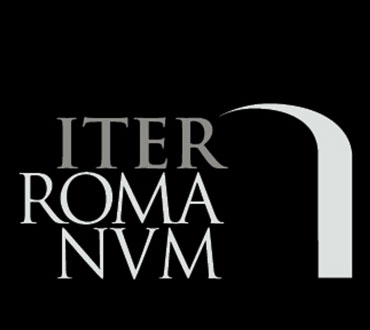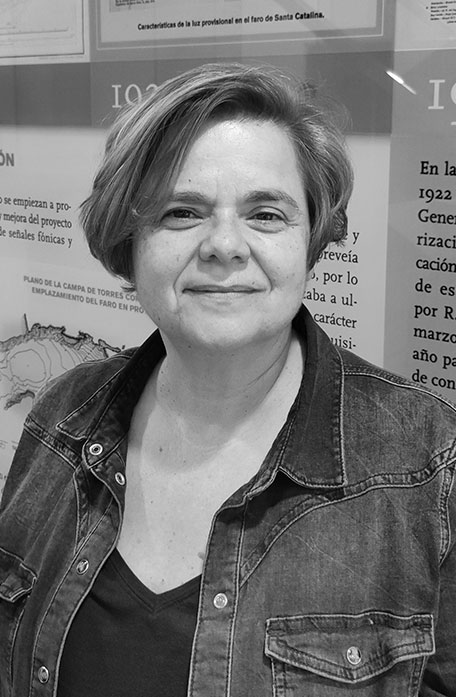
Paloma García Díaz - Coordinator


Paloma García Díaz - Coordinator

Scientific Committee Coordinator
Archaeologist with a BA degree from the Autonomous University of Madrid, Spain. Since 1999 she has held the position of Director of the Archaeological Museums of the City of Gijon (Spain): Roman Termae of Gijón, La Campa Torres Archaeological Natural Park and Roman Villae of Veranes, Gijón. Due to her position, she is an internationally recognized expert in the archaeological research of the rich Roman past of the city of Gijón, with a great deal of field excavation experience. She also is an expert in the communication of investigation results to the general public, as well as in the management and protection of Roman heritage from the perspective of a local institutional body.
Relevant projects:
- Research and excavation of the Campa Torres Roman archaeological site in Gijón.
- Museum Rehabilitation and Adaptation Project of the Astur-Roman villae in Veranes, Gijón, inaugurated in 2007.

Pau de Soto Cañamares


Pau de Soto Cañamares

Pau de Soto is a lecturer in Classical Archaeology in the Department of Antiquity Sciences at the Autonomous University of Barcelona (UAB). The main subject of his research has been Roman roads, especially the study of transport networks. His projects combine archaeological studies, GIS and the application of network science to study connectivity and transport costs in ancient times. Pau de Soto has been a researcher in several international universities (UK, Portugal, and Spain). Pau de Soto has directed the Mercator-e project that produced a detailed view of the historical evolution of the Iberian Peninsula transport networks and is currently carrying out the Viator-e project aimed at compiling, digitizing, and disseminating the road network in the western part of the Roman Empire.
Relevant projects:
- Viator-e: Research, digitalization and dissemination of the Roads of the Western Roman Empire. Ministerio de Ciencia, Innovación y Universidades. (RTI2018-098905-J-I00) PI: P. de Soto (Institut Català d’Arqueologia Clàssica).
- Mercator-e: Quantifying the Impact of Transport Infrastructures: Network Analysis Applied to the Diachronical Study of the Iberian Peninsula (From Roman Times to 19th Century). European Commission (Universidade Nova de Lisboa).
- Itiner-e: The Gazetteer of Roads. Pelagios Commons, Resource Development Grant. PI: P. de Soto (Institut d’Estudis Catalans).
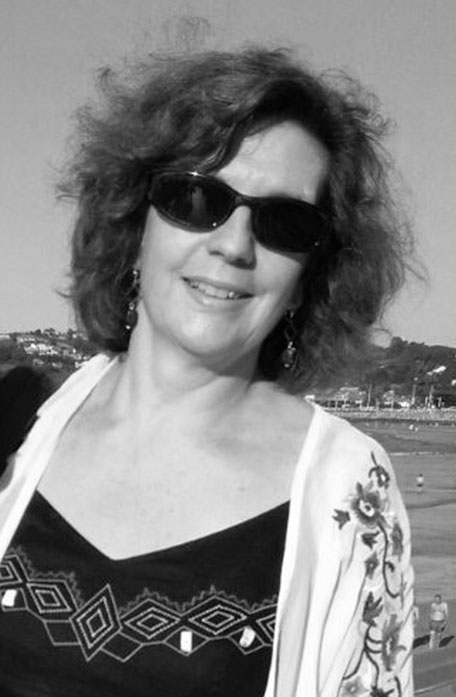
Almudena Orejas Saco del Valle


Almudena Orejas Saco del Valle

Dr. Almudena Orejas is a research professor in the Department of Archaeology and Social Processes (Institute of History), a part of the Spanish Council for Scientific Research (CSIC). Her research focuses on Landscape Archaeology, particularly on ancient mining and agrarian landscapes. She has chaired several national and European projects and produced important academic work, with more than 200 contributions. She is involved in programmes aimed at the promotion of cultural landscapes as heritage.
Relevant projects
- 2007-2010: Interdisciplinary Scientific Initiative. New perspectives on Landscape Studies. A Network of Networks (ESF/ COST), Chair: T. Bloemers.
- 2008-2013: Technologies for the Conservation and Evaluation of Constructed Heritage Research Programme (TCP) (CONSOLIDER), Chair: F. Criado; Vice-chair: A. Orejas.
- 2013-2015: Landscapes of domination, landscapes of resistance. The appropriation and control mechanisms of society and territory in NW Hispania (PADORE), Chair: A. Orejas
- 2014-2016: Cultural Heritage in Landscape (CHeriScape). JPI-JHEP Joint Pilot Transnational Call for Joint Research Projects on Cultural Heritage. LP: Graham Fairclough; IP: Almudena Orejas

Miguel Sopas de Melo Bandeira


Miguel Sopas de Melo Bandeira

Miguel Sopas de Melo Bandeira is a certified associate professor at the Institute of Education, University of Minho (Portugal). He received a PhD in Human Geography (2002), with professional competency in Geography (2015), from the University of Minho (Pt). He was a professor at the Institute of Social Sciences at the University of Minho (1990-2022). Between 2013 and 2021 he was also guest lecturer in the master’s program in Architecture (Guimarães) and PhD courses in Cultural Studies (Braga) at the University of Minho. He held public office as a councilman on the City Council of Braga (2013-2021), working in the areas of heritage, territorial and landscape planning, urbanism, urban regeneration, mobility, and university relations.
He is member of ASPA – Association for the Defence, Study and Promotion of Cultural and Natural Heritage (Braga), a researcher at the Center for Studies in Communication and Society (CECS) of UMinho (since 2006 and exclusively since 2020) and President of the Cultural Council of the University of Minho (since 2022).
Relevant projects:
-
- Participation in national and international associations: President of the Association « Roman Routes Heritage in Europe Cooperation Network (Iteromanum) » (2017-2021); Network of Roman Cities of the Atlantic-ATLANTIACA, Founder of the Association of Municipalities of Roman Portugal.
- Participation in musealization and territorial planning projects, based on cultural heritage (2015-2021).
- Participation in the work of fixing, studying and signage of cultural itineraries, from the City Council of Braga (2013-2021).
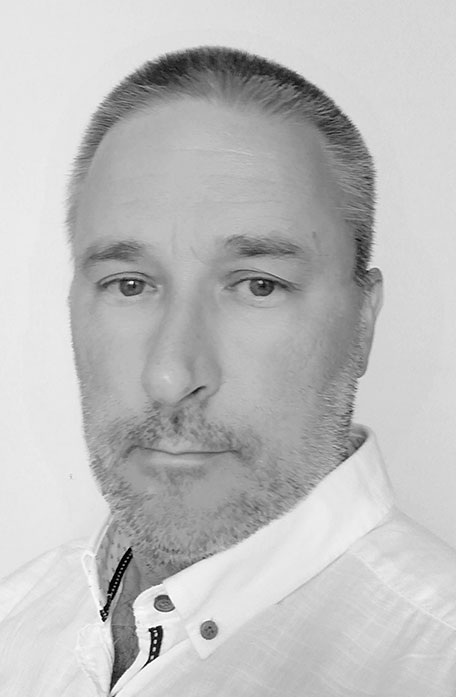
Miroslav Vujovic


Miroslav Vujovic

Miroslav Vujovic is a lecturer at the University of Belgrade and a specialist in the archaeology of Sirmium (Sremska Mitrovica) and Roman military camps. He currently holds courses in general Roman archaeology and archaeology of the Roman provinces at all levels of archaeology studies in the Department of Philosophy. He has carried out a great deal of field work and participated in scientific symposia in the country, the region (Zagreb, Ptuj, Pula, Podgorica, Budva) and abroad (Mainz, Xanten, Glasgow, Copenhagen, Exeter, Oxford).
Relevants proyects:
-
- Study of the Roman army and early Christian archaeology.
- Participated in scientific symposia in the country, the region (Zagreb, Ptuj, Pula, Podgorica, Budva) and abroad (Mainz, Xanten, Glasgow, Copenhagen, Exeter, Oxford).
- Participated in the work of archaeological research teams in Serbia (Gamzigrad – Romuliana) and Montenegro (Komini – Municipium S.).

Sara Zanni


Sara Zanni

Sara Zanni graduated in 2009 from the Università degli Studi di Milano (Italy) with a thesis on Roman Archaeology. In 2010 she achieved a master’s degree in Geotechnologies Applied to Archaeology at the Università di Siena (Italy) and in 2014 she defended her PhD thesis in Classics at the Università degli Studi di Milano.
In 2015 she received a Marie Sklodowska-Curie Fellowship at Université Bordeaux Montaigne (France) for the RecRoad Project, aimed at identifying and mapping the Roman itinerary from Aquileia (Italy) to Belgrade (Serbia) through the use of various remote sensing and digital archaeology techniques. In 2020 she started working on the MAGOH Project thanks to a post-doctoral fellowship at the MAPPALab of the Università di Pisa (Italy). The project aims to digitize the archive of the Soprintendenza Archeologica for the Provinces of Firenze,
Pisa, Pistoia and Prato and to develop a WebGis platform for the management and protection of archaeological heritage for everyday use in the Italian Ministry of Culture.
Relevant projects:
- RecRoad Project (http://reconstructingromanroads.wordpress.com)
- MAGOH Project (https://www.mappalab.eu/magoh/)
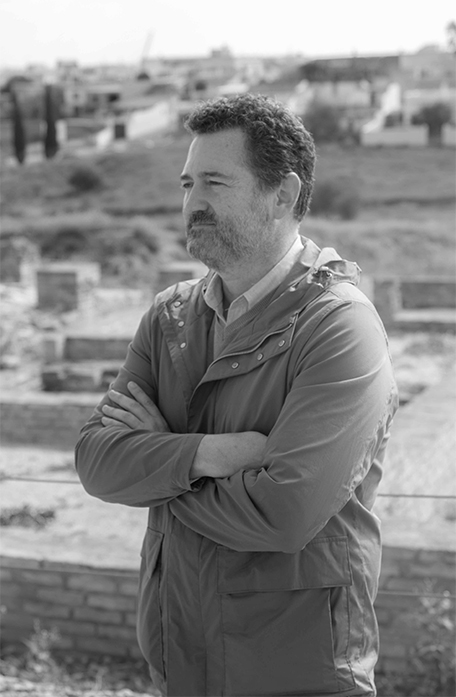



Manuel León Béjar is an archaeologist and researcher. He also has a master’s degree in agri-food, specialising in vitiviniculture in hot climates, and he is the manager of www.arqueogastronomia.com.
In his professional career, he has directed numerous archaeological projects, designed and put into practice Strategic Plans for Tourism and Local Development related to archaeological heritage and the creation of infrastructure and facilities for public use associated with archaeological sites. In the field of agri-food, he has worked in FOOD INNOVATION and the physical reconstruction of oenological products in the early Roman Empire by researching gastronomic uses of garum and its culinary uses in Roman times in dishes such as oenogarum.
He teaches at the Teacher Training Centre or CEFIRE in the Community of Valencia, on the Archaeology Master’s course at the University of Seville, the Master’s in Gastronomic Culture at the University of Cádiz and the Sommelier School in Cádiz, and he is the director of the course on food innovation and hostelry in connection with Cultural Heritage in the south-west of the Iberian Peninsula (La Palma del Condado, Huelva).
He is also the head commerce technician at Productos Majuelo, a manufacturer of vinegars and sauces in Jerez that makes Flor de Garum in collaboration with the University of Cádiz. He is additionally the author of several publications about gastronomy and cultural heritage.
Main projects in which he has taken part:
- GARUM TRANSFER, in the call for Proof of Concept projects 2021.
- The logistics of Roman cities: a circular economy? 2017-2020 State Plan for the generation of knowledge – R+D+i projects.
- GARUM II. Co-author of the catalogue and design of the exhibition on food innovation and archaeology “The Secrets of Garum”, at the Archaeological site of Tarifa (Bolonia).
- LACUS LIGUSTINUS. Research and experimental application of technological processes in wine production in Roman Hispania.
